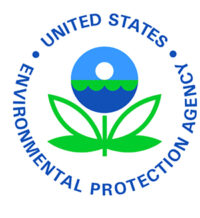WASHINGTON –Â the U.S. Environmental Protection Agency (EPA) announced $3,169,239 in funding to eight small businesses to further develop and commercialize their environmental technologies, delivering economic and environmental benefits to the communities they serve. Awarded projects include an air purifier that reduces the risk of transmitting viruses and bacteria, a forecasting tool that reduces unwanted pesticide drift, software technologies for improved recycling, and a process for producing a sustainable low- carbon building material.
“Addressing our most pressing environmental and public health problems requires innovation and creative thinking from all sectors,†said Chris Frey, Assistant Administrator of EPA’s Office of Research and Development. “I am excited to see how these small businesses leverage this investment from EPA to bring their promising technologies to the marketplace.â€
EPA issues an annual Small Business Innovation Research (SBIR) solicitation for technology proposals for specific high priority environmental topics. Proposals are evaluated on their technical merit, potential for commercialization and impact in the given topic area. These companies have already received Phase I contracts from EPA of up to $100,000 for 6 months to prove the concept for their proposed technology. The companies announced today are receiving Phase II awards of up to $400,000 to further develop and commercialize the technologies.
The following small businesses are receiving SBIR Phase II awards:
- CleanRobotics, Inc. (Longmont, Colo.) – To develop an artificial intelligence-powered trash system for sorting and auditing waste at disposal.
- Geometric Data Analytics (Durham, N.C.) – To develop a web-based application that uses mathematical and statistical techniques to provide highly localized and accurate forecasts to mitigate pesticide drift.
- Kebotix, Inc. (Cambridge, Mass.) – To develop an artificial intelligence platform to develop polychlorinated biphenyls (PCB)-free pigments.
- KLAW Industries LLC (Binghamton, N.Y.) – To develop a novel process to reuse wasted glass in high performance, low-carbon concrete.
- Ohio Lumex Company (Solon, Ohio) – To develop a sorbent trap for continuous emissions monitoring of metal hazardous air pollutant emissions.
- Sonata Scientific LLC (Danbury, Conn.) – To develop an air purifier that uses photocatalytic technology to destroy airborne pathogens.
- Triangle Environmental Health Initiative (Durham, N.C.) – To develop a compact, modular treatment system for non-potable reuse of residential and commercial greywater.
- Zabble Inc. (Walnut Creek, Calif.) – To develop a zero-waste management platform that uses artificial intelligence.





